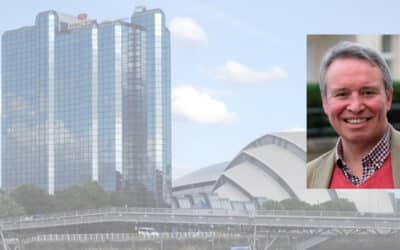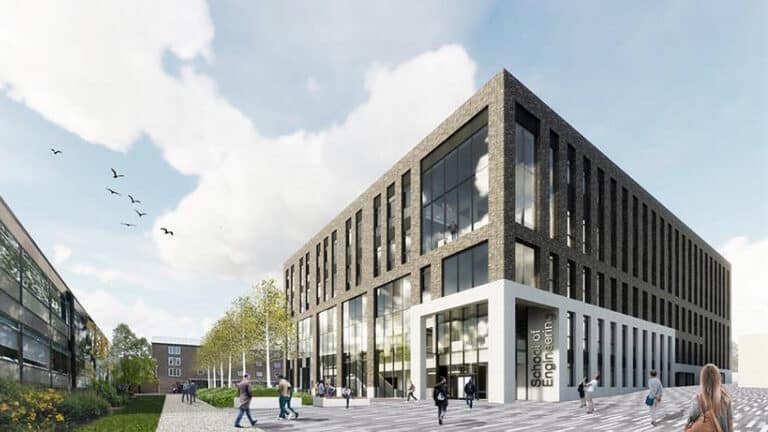Heat from one of Edinburgh University’s large server rooms is to be used to keep the university’s buildings warm, under a £2.1m decarbonisation scheme.
Currently, the computer equipment in the university’s King’s Buildings is prevented from overheating by chiller units on the roof which pump cool air into the server bays.
The university now plans to install a heat pump which will take the excess warm air from the servers and use it to help heat the building.
The scheme has received about £2.1m from a Scottish government fund for decarbonising public buildings, and if successful it is hoped the pilot project can be rolled out at server rooms across the university’s estate.
Under the university’s plans, the pipes which currently extract warm air from the server cabinets will remain in place, meaning little disruption to the university estate. But the new heat pump will extract warmth from the piped air and use it to heat separate pipes which go to radiators and under-floor heating around the university.
Many of the university’s properties have listed building status, however, and will take significant investment in measures such as insulation to make the heat pump systems work effectively.
Vice Principal Catherine Martin said: “We’ve got a large and complex estate at the university – 550 buildings, each with its own challenges.”
Heating public buildings accounts for about two per cent of Scotland’s total greenhouse gas emissions, and the Scottish government’s £20m public sector heat decarbonisation fund provides grants to help make them free from carbon emissions.
In the first round of announcements, £11m has been awarded to seven projects, including the university and Dumfries Ice Bowl, which has received £2.5m to capture heat generated from the refrigeration system which keeps the ice frozen.
Net Zero minister Patrick Harvie said: “We have made clear that we want all public sector buildings to have moved to clean heat by the end of 2038. We expect the public sector to demonstrate leadership in this area and I am therefore very pleased to be able to confirm these first awards from the fund.”












